Mothers fear malaria and water-borne diseases after South Sudan flood
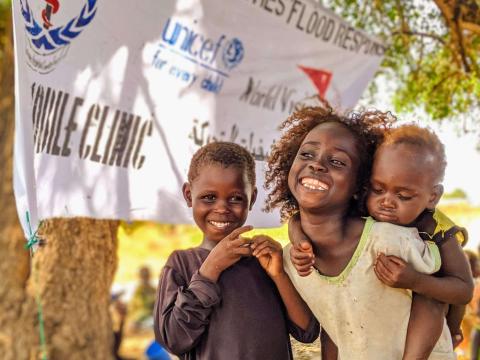
Melut County – “Our biggest concern is the rise of malaria and water-borne diseases”, says World Vision’s Health Project Manager Dr. Terefe Tafesse Woldeyes at World Vision’s integrated mobile health clinic being conducted for flood-affected families.
The clinic services included general check-up, nutrition screening, immunization of children, ante-natal care and distribution of medicines and anti-malaria mosquito nets. It is in partnership with the Melut County Health Department.
An estimated 2,000 people rushed to the clinic. “The nearest facility for these people is over an hour by land transport. With the road destroyed, it will even be harder for them to go there just for a check-up”, Dr. Woldeyes explains. Many mothers have expressed their concerns over the rising threats of malaria as vast areas of Melut and Adar counties are still underwater.
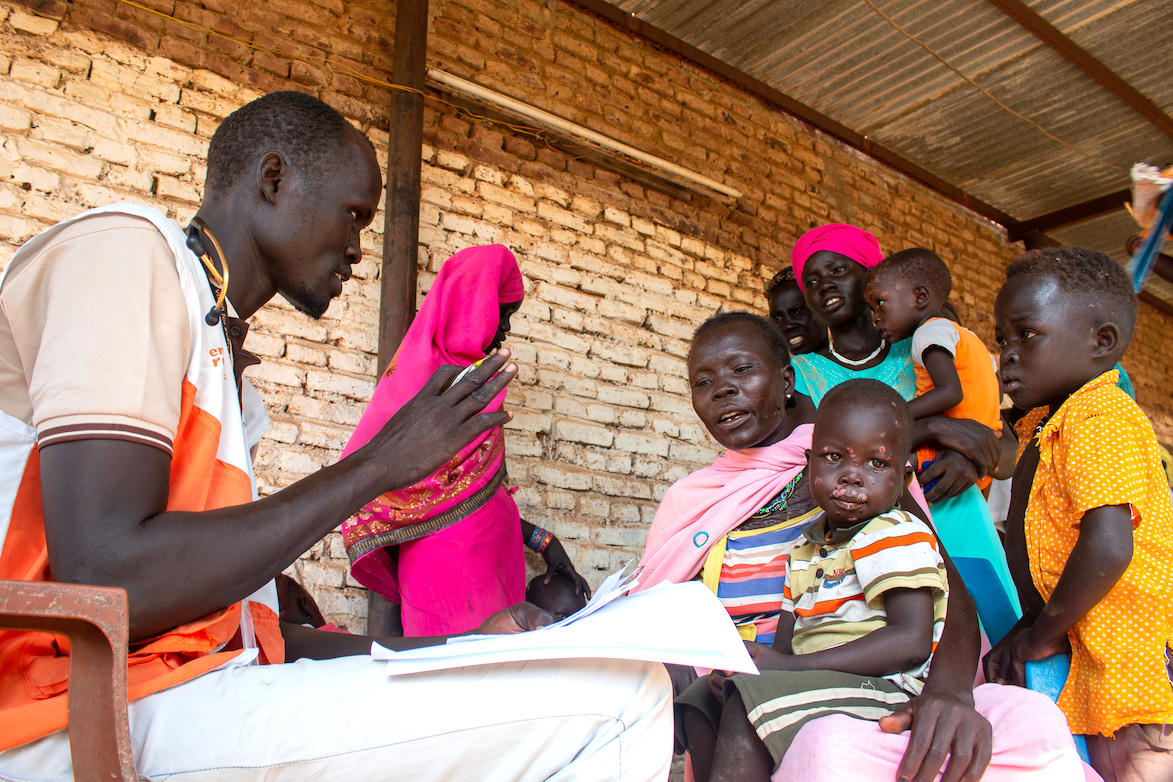
Harriet Yangi, a member of World Vision’s health team, said many of the pregnant women have not gone for an ante-natal check. “This is their first time to be checked. They are so happy we came here after the flood. They have no money to pay for the transport going to the clinic”, she says.
A midwife by profession, she is alarmed of the risks that the women, and their babies, face without proper check before and during pregnancy. Fifty-four pregnant mothers were screened, majority of them suffer malaria and urinary tract infection often caused poor hygiene. They are provided medicines sensitive to the term of pregnancy they are in.
She explains, “But I understand their situation. Without any resources, they are helpless. They need more support from organizations like World Vision. Flooding and disasters further increase the risks for them.” Health coordinator Mawein Mathias Maring found out many of the under-five children he was screening for malnutrition are suffering from scabies and skin diseases.
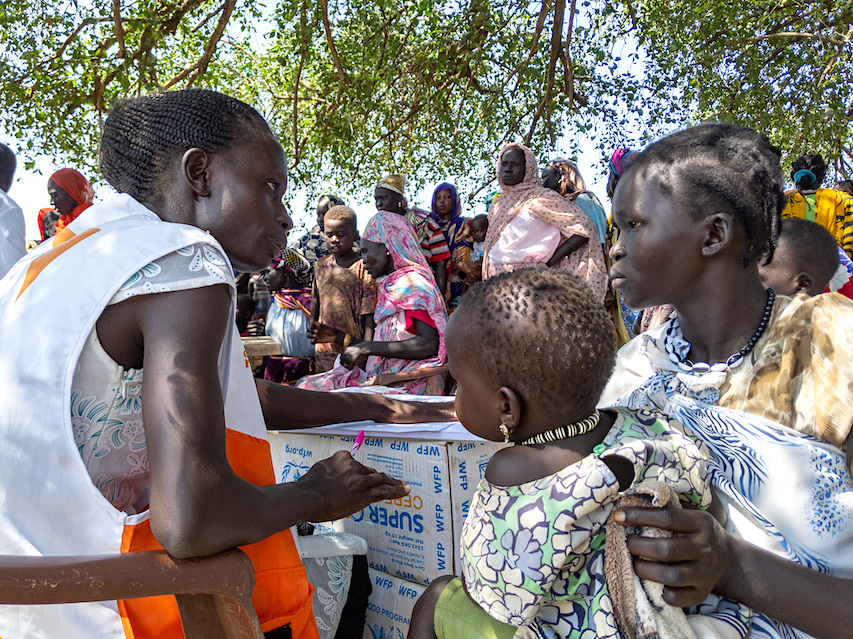
“The children have skin diseases, most are in their faces and heads. They look very itchy and they keep scratching them”, Maring adds. Though it needs more testing to confirm the problem, the mothers suspect the cause can likely be the water they are using from the ponds and stagnant river, where the children also play and swim every day.
Nutrition Officer Bridget Ajio said 137 children were screened with malnutrition, 69 of them are under five years old and 17 were admitted for the feeding program. Ninety-one pregnant and lactating women were also screened and six were admitted for the supplementary feeding program. "Malnutrition will likely worsen during the incoming dry season. The impact of the flood will make it even more difficult for the women and children", shares Ajio.
Agoth who manages the boat service that ferries World Vision’s staff and residents to cross the road destroyed by the flood and turned into a river said his last experience of the flood was in 2007. “But it was not this big. We were surprised at how the water eroded the road. Now it is all water”, he says.
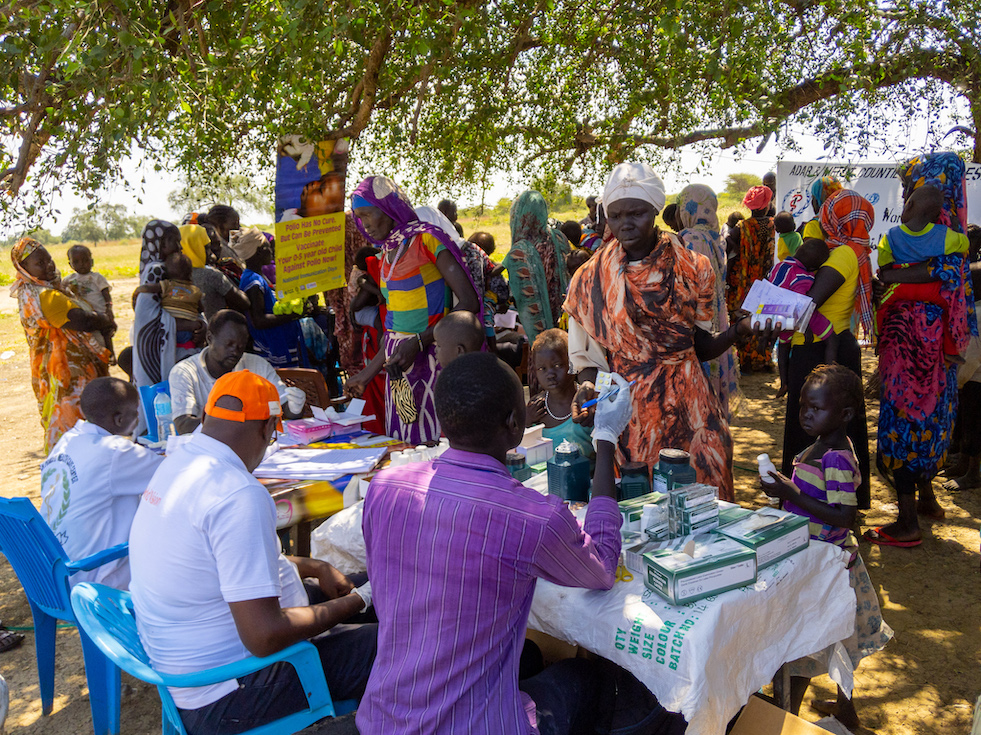
The boat, supported by a local company, moves at least 100 people who need to cross for free from morning to afternoon. “It is deep and the current is still strong”, Agoth adds. He said when the strong gush of water came at the height of the flood, the trees around got submerged and the current dangerously swift. A huge chunk of Adar road was destroyed.
World Vision has to rent a vehicle to transport its staff to the health and nutrition activity for flood survivors. Johnson LaFortune, World Vision’s Melut Team Leader expects the need from families to rise in the coming months with livelihoods and houses gone. He says, “The mobile clinic was immediately sent to respond to the people’s health and medical needs. But they need more – food, shelters and the children’s essentials.”
The Government of South Sudan has declared the recent flooding as a humanitarian emergency affecting an estimated one million people.
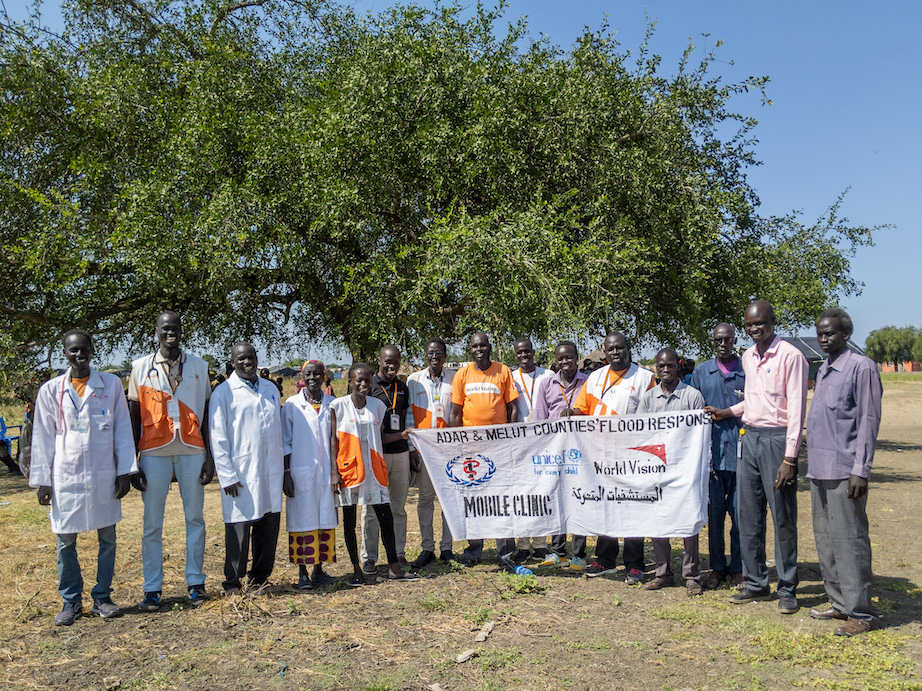
Story by Cecil Laguardia, Communications Manager l Photos by Chris Lete and Eugene Combo/World Vision